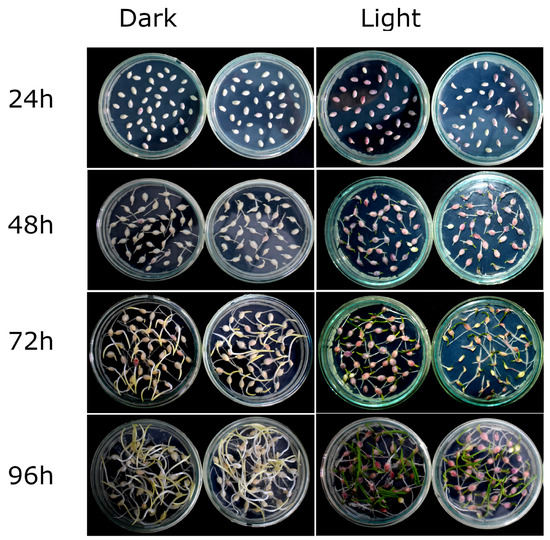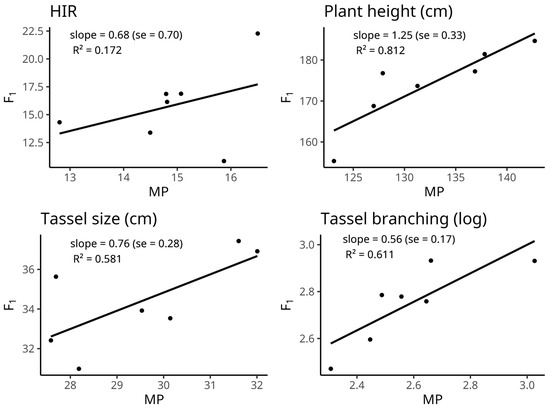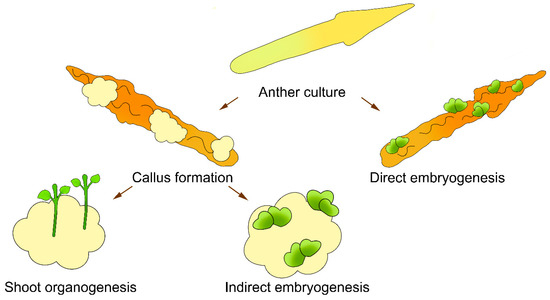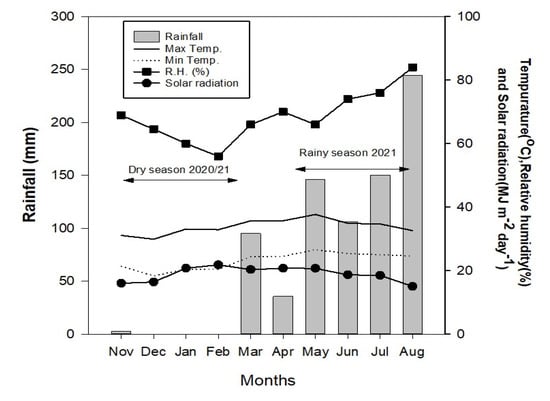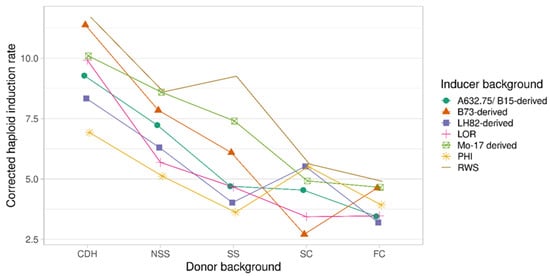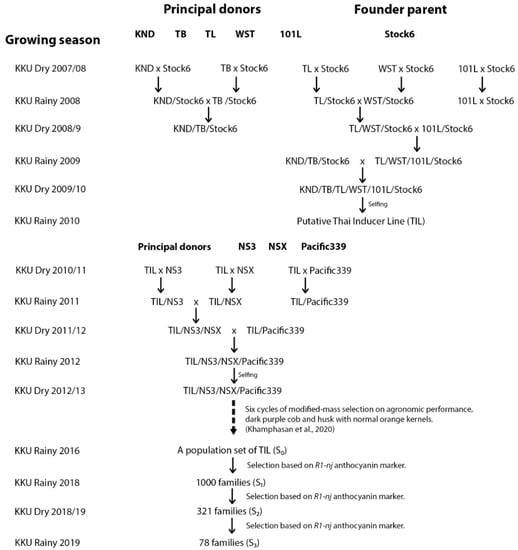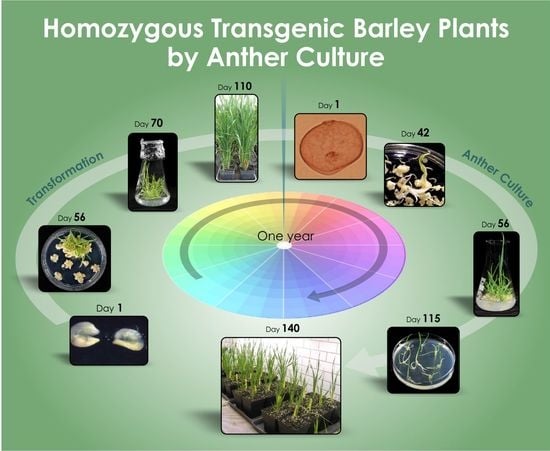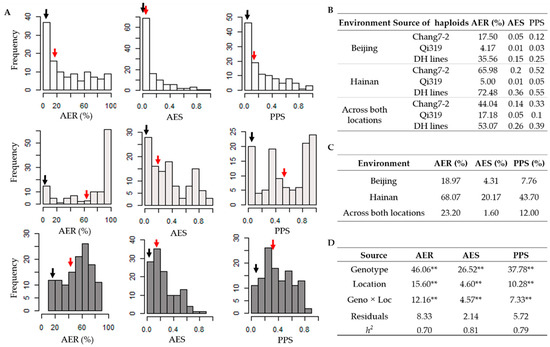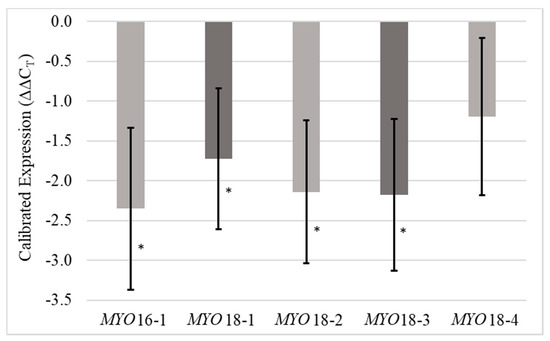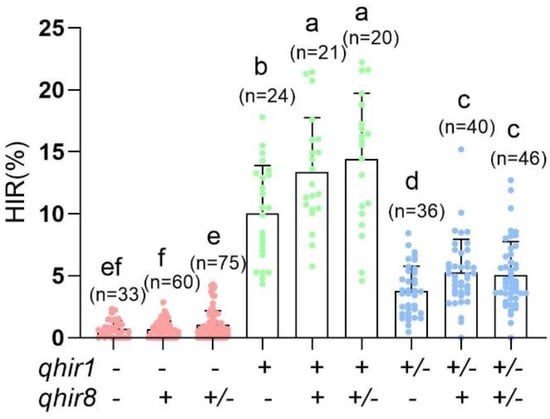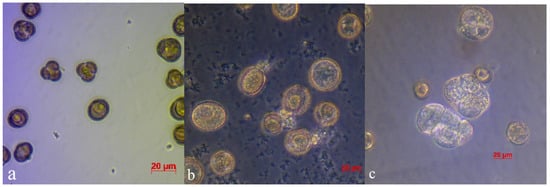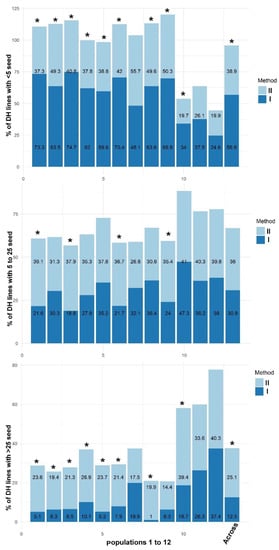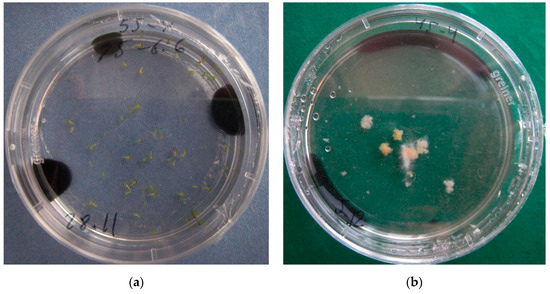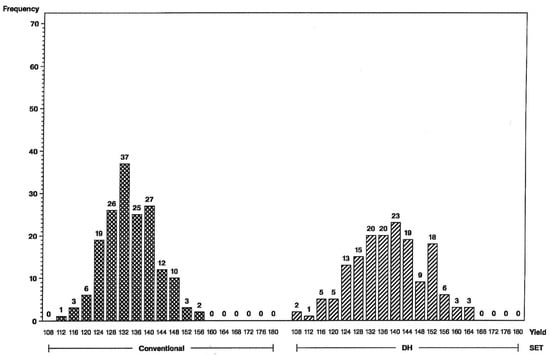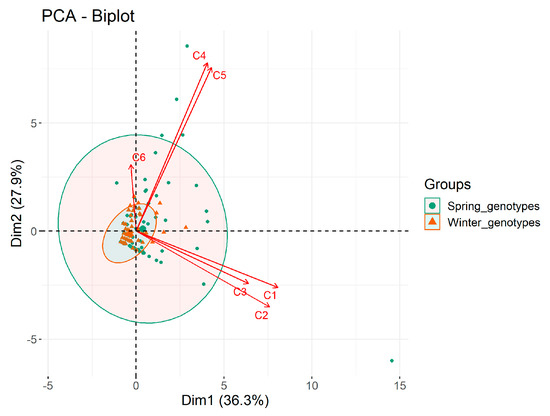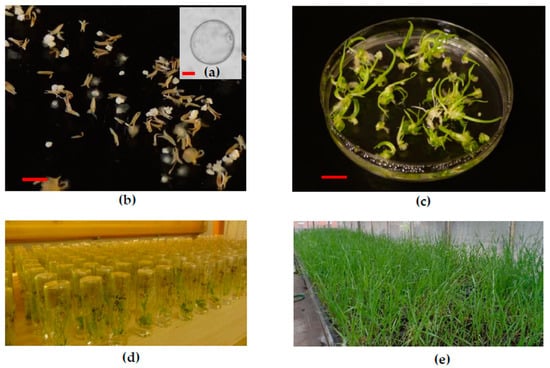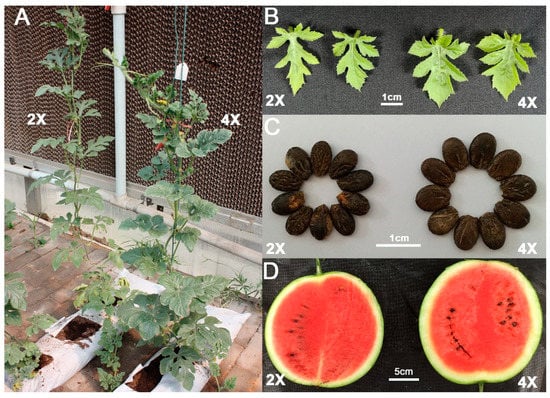Doubled Haploid Technology in Plant Breeding
A topical collection in Plants (ISSN 2223-7747). This collection belongs to the section "Plant Genetics, Genomics and Biotechnology".
Viewed by 120199Editor
Topical Collection Information
Dear Colleagues,
The ability to generate homozygous and homogeneous lines is an important time constraint in plant breeding. By using doubled haploids (DHs), homozygous and homogeneous lines can be produced in two rather than five or more generations. Other advantages include reduced costs to produce cultivars, more precise evaluation of phenotypic traits, effective elimination of undesirable genes, and trait fixation in haploids using marker-assisted selection, leading to effective use of molecular markers and more efficient combination of traits. Because the success of breeding programs depends on the genetic gain per unit time, the use of DH technology has become routine in the breeding of the major self-pollinated cereal species wheat and barley, as well as in maize and canola.
Three approaches are generally used to develop DH lines: (1) microspore and anther culture, (2) wide hybridization between different species (such as the use of maize as a haploid inducer in wheat) to induce chromosome elimination, and (3) the use of particular inducer genotypes within species that facilitate the production of kernels with haploid embryos. This latter approach has resulted in the isolation of genes controlling haploid induction. The first respective gene, indeterminate gametophyte 1 (ig1), was discovered in maize and enables the generation of paternal haploids. A histone encoding gene, CenH3, is responsible for haploid induction in Arabidopsis thaliana, and a CenH3 homologue gives Hordeum bulbosum the ability to induce haploids in barley (Hordeum vulgare). More recently, quantitative trait loci (QTL) have been genetically and physically mapped and used to control the induction of maternal haploids in maize. Further, the gene matrilineal (MTL) underlying this QTL has been isolated by three independent research groups. It can be expected that an increasing number of genes associated with haploid induction control will be available in the near future. It has been demonstrated that these genes or their homologues can be used to establish haploid induction in novel species.
In this collection articles (original research papers, perspectives, hypotheses, opinions, reviews, modeling approaches and methods) are most welcome that focus on molecular processes related to haploid induction, genome doubling, biological processes involved in doubled haploid plant development in tissue culture (using approaches such as transcriptomics, proteomics, metabolomics, and genetic mapping), the development of methods to increase the efficiency of the DH process (such as novel phenomic methods for haploid – diploid discrimination), introduction of DH technology in novel species, and the utilization of DH technology for novel applications (such as for gene editing), in model plants, crop plants, trees, aquatic plants and native species.
Prof. Thomas Lübberstedt
Collection Editor
Manuscript Submission Information
Manuscripts should be submitted online at www.mdpi.com by registering and logging in to this website. Once you are registered, click here to go to the submission form. Manuscripts can be submitted until the deadline. All submissions that pass pre-check are peer-reviewed. Accepted papers will be published continuously in the journal (as soon as accepted) and will be listed together on the collection website. Research articles, review articles as well as short communications are invited. For planned papers, a title and short abstract (about 250 words) can be sent to the Editorial Office for assessment.
Submitted manuscripts should not have been published previously, nor be under consideration for publication elsewhere (except conference proceedings papers). All manuscripts are thoroughly refereed through a single-blind peer-review process. A guide for authors and other relevant information for submission of manuscripts is available on the Instructions for Authors page. Plants is an international peer-reviewed open access semimonthly journal published by MDPI.
Please visit the Instructions for Authors page before submitting a manuscript. The Article Processing Charge (APC) for publication in this open access journal is 2700 CHF (Swiss Francs). Submitted papers should be well formatted and use good English. Authors may use MDPI's English editing service prior to publication or during author revisions.
Keywords
- haploid induction
- genome doubling
- anther culture
- microspore culture
- inducer development
- maternal haploid induction
- paternal haploid induction
- haploid-diploid discrimination
- utilization of doubled haploids






